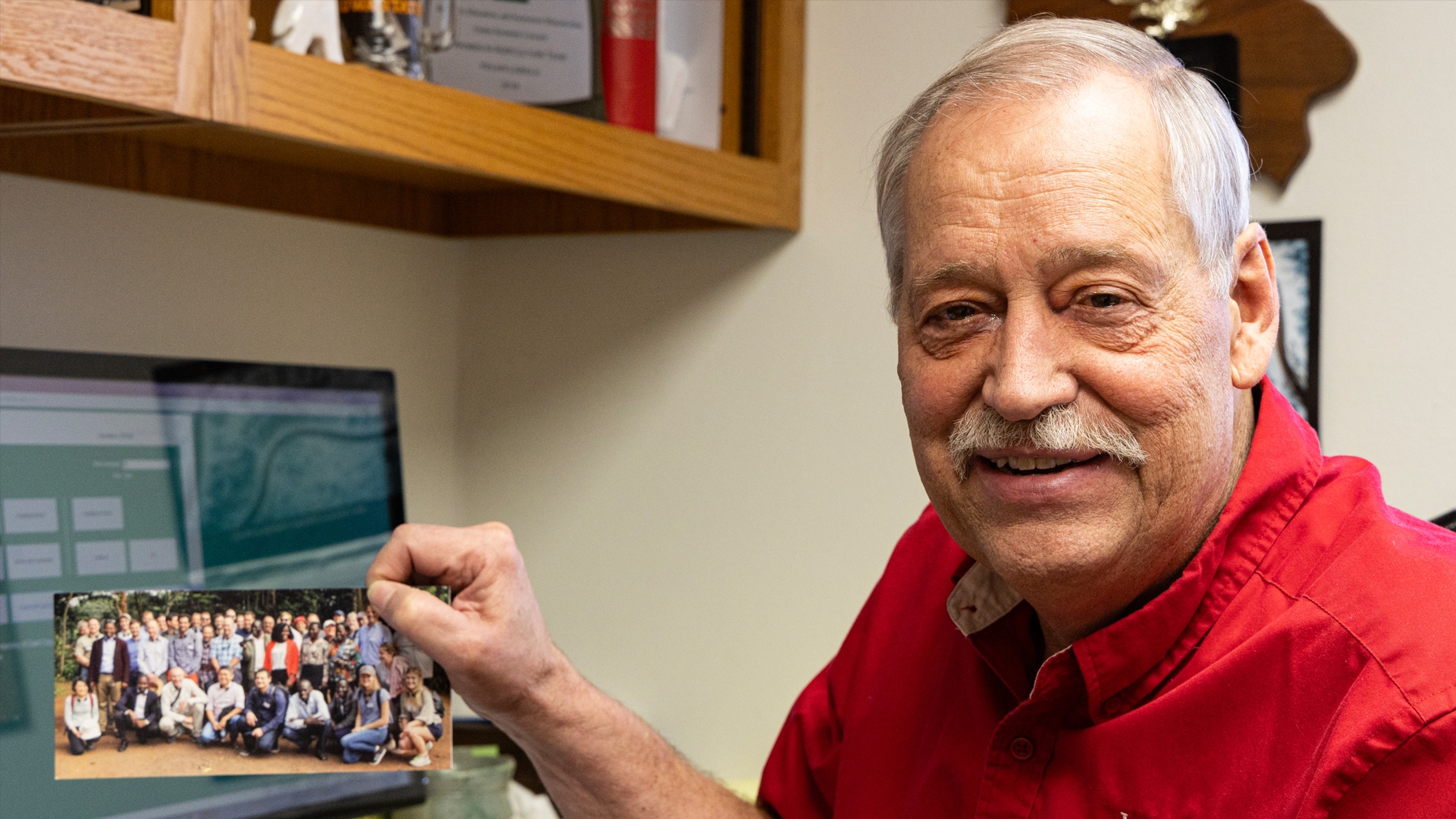Kelvin Leibold noticed a disconcerting trend while working as an Iowa State University Extension agent and farm management specialist during the late 1980s and early 1990s.
To generate income during this turbulent economic time, many farm wives worked in off-farm jobs. While cashing their paychecks at banks, some hurriedly signed financial documents.
After digging into one case, Leibold told a surprised spouse who swore she would never mortgage the house her parents gave her that she did exactly that by blindly signing a document.
“You had all these [farm] women who were told, ‘Just sign here, just sign here,’ ” Leibold says. “They didn’t understand the consequences in doing so, like giving up rights to their home under bankruptcy law. In other cases, they were co-signing on the [farm’s] debt.”
Leibold saw an educational niche for farm women that needed to be filled.
Leibold and two ISU Extension colleagues, Tim Eggers and Bob Wells, formed an Annie’s Project program for Iowa farm women. This national nonprofit program has helped more than 19,000 women in 38 states and the U.S. Virgin Islands gain agricultural business and production skills.
Together with April Hemmes, a Hampton farmer, Leibold also organized a women’s marketing group that met monthly for 14 years.
“Kelvin holds a special place with women in agriculture,” says Hemmes, a 2024 Iowa Master Farmer.
For contributions such as this, Leibold is receiving a 2025 Iowa Master Farmer Exceptional Service to Agriculture Award.
Humble beginnings
Leibold grew up on a northeastern Iowa dairy farm. After he graduated from ISU, he taught high school agriculture before returning to ISU to earn a master’s degree. He started as an ISU Extension agent in Franklin County before becoming an ISU Extension farm management field specialist for north-central Iowa in 1992. He retired in 2024.
“Kelvin was known for bringing his real-life experiences and situations to the program, and would share how to address the issues at hand with his examples,” says Ann Johanns, an ISU Extension programs specialist. “He averaged over 100 speaking engagements per year for multiple years in a row, excelling at reaching clients in group settings and one on one.”
Leibold also worked with John Deere in a program that educated more than 5,500 employees about modern agricultural production practices and global agriculture.
He built upon this international exposure in 2007 by helping to rebuild Nigeria’s hog industry after African swine fever devastated it.
With fellow ISU specialists James McKean and Glen Easter, Leibold established a breeding stock facility that produced 600 breeding females annually. Each of 200 Nigerian producers received three of these females annually. The initial project’s success led to the funding of a second breeding site.
Leibold topped off his career by spearheading fundraising when Iowa hosted a meeting of the National Association of County Agricultural Agents in 2023.
“We had over 1,000 people attend the conference, and held tours across Iowa,” he says. “It was a great way to capstone my career in Extension.”
Reflecting on success
In retirement, Leibold keeps busy with consulting projects and spending time with family.
It’s also given him a chance to reflect on receiving a Master Farmer Exceptional Service to Agriculture Award.
“To be included with past winners, who were nationally known and recognized for their work, is truly a great honor and something I really hold special,” he says.
 GLOBAL NETWORK: Kelvin Leibold worked with this global agri benchmark crew on projects. A global, nonprofit network, agri benchmark consists of agricultural economists, advisers, producers and specialists in key sectors of agricultural and horticultural value chains.
GLOBAL NETWORK: Kelvin Leibold worked with this global agri benchmark crew on projects. A global, nonprofit network, agri benchmark consists of agricultural economists, advisers, producers and specialists in key sectors of agricultural and horticultural value chains.It’s also given others who have worked with Leibold a chance to express their appreciation.
“I consider Kelvin as my superhero and guardian angel following the death of my husband in 2011,” says Monica Lursen, a Clarksville farmer. “Kelvin’s [marketing] group was the perfect venue to feel comfortable asking the many questions I had. His willingness to answer questions, provide guidance and patience while putting up with a group of women every month was a phenomenal contribution to our family farm’s success 14 years later.”
1980s redux?
Leibold cut his Extension career teeth dealing with the aftermath of the 1980s farm debt crisis. Could it happen again?
Leibold saw some warning signals occur in 2016 and 2017.
“We are looking at 20% to 25% of our farms running out of cash during that time,” he says. “We were starting to see a retracement in land values. They were up against a wall, but there were pretty significant government payments that arrived and saved the day for most of the operators. So yes, it could happen again.”
A major lesson out of the 1980s is that relying upon inflation to fuel farm wealth is a lousy strategy. Instead, Leibold consistently stressed the importance of adequate cash flow through working capital (total current assets minus total current liabilities).
“It’s pretty simple: If you don’t have cash flow, people will take things away from you,” he says.
Master at a glance
Name: Kelvin Leibold
Family: Wife, Kristie Leibold; children, Amanda Nesvik, Lisa Leibold and Michael Leibold
Location: Iowa Falls, Iowa
Position: Iowa State University Extension farm management specialist, 1992 to 2024
Fun fact: The hogs used to repopulate Nigeria’s swine herd came from Ireland. Shipped to Germany, the hogs were then loaded on 747s to Nigeria. “So, I guess you can say pigs can fly,” Leibold quips.